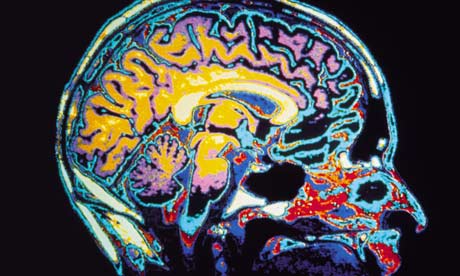- guardian.co.uk, Thursday 1 May 2008 09.31 BST
- Article history

Photograph: Howard Sochurek/Corbis
A hormone used in contraceptive pills may help prevent brain damage in people who suffer serious head injuries, researchers claim.
Doctors believe injections of progesterone, a female sex hormone used in oral contraceptives, can promote the survival of nerve cells in the aftermath of a severe injury.
In a trial, doctors monitored 159 patients who had been admitted to hospital with serious brain injuries from car crashes, falls or sporting accidents. Hospital staff gave 82 of the patients regular injections of progesterone within eight hours of their injury, while the rest were given placebo injections. Those patients who received progesterone were given further injections every 12 hours for the following five days.
Over the next six months, doctors assessed the patients' recovery and noticed a remarkable improvement among those who received progesterone. While 40 patients died of their injuries, only 18% of those who had progesterone died, compared with 32% of the placebo group.
After six months, the condition of the patients who received progesterone had improved more, suggesting their brain cells had not been so severely damaged by their original injury. Doctors rated 58% of patients who received progesterone as having made a good recovery, while only 42% of those on placebo recovered as well after six months.
Those who did not recover as well remained seriously disabled, in a vegetative state or died from their injuries.
If the improvement is replicated in multicentre trials, progesterone could become widely used to boost patients' recovery from head injuries.
Previous research in animals has suggested progesterone could protect the brain's neurons from damage, but it had been unclear whether it could protect neurons in humans, said Professor Weiqi Han at Zhejian University in China.
"The use of progesterone may significantly improve the neurologic outcome of patients suffering severe traumatic brain injury up to six months after injury," he said.
The study appears in the journal Critical Care.

